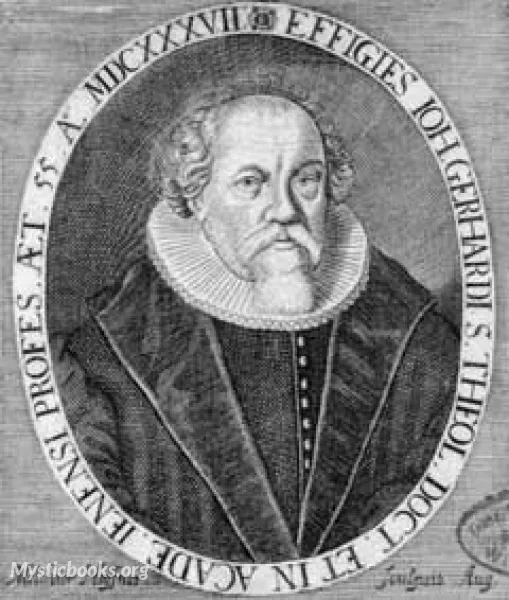
Timeline
Title
Country/Nationality
Johann Gerhard
In the annals of Lutheran theology, Johann Gerhard stands as a towering figure, a prolific writer and ardent defender of the Lutheran faith. His contributions to Lutheran scholasticism, a movement that sought to reconcile Lutheran theology with Aristotelian philosophy, solidified his reputation as a leading scholar and theologian of his time.
Early Life and Education
Born on October 17, 1582, in Quedlinburg, Germany, Johann Gerhard was the son of a Lutheran pastor. His early education was marked by a strong focus on theology and classical languages. In 1599, he enrolled at the University of Wittenberg, the cradle of Lutheranism, where he immersed himself in the study of Lutheran theology under renowned scholars such as David Chytraeus and Paul Crusius.
Theological Contributions and Principles
Gerhard's theological contributions were vast and diverse, encompassing a wide range of topics, from biblical exegesis to systematic theology. His most notable work, the Loci Theologici (Places of Theology), a comprehensive treatise on Lutheran doctrine, is considered a cornerstone of Lutheran orthodoxy.
Gerhard's theology was characterized by a strong emphasis on the authority of Scripture, the importance of justification by faith alone, and the centrality of the Gospel of Christ. He also sought to reconcile Lutheran theology with Aristotelian philosophy, a task that was central to the Lutheran scholastic movement.
Notable Works and Philosophy
Gerhard's literary output was prodigious, producing over 150 works, including commentaries, sermons, and theological treatises. His most renowned works include:
- Loci Theologici (Places of Theology)
- Meditationes Sacrae (Sacred Meditations)
- Harmonia Evangeliorum (Harmony of the Gospels)
- Scholia in Novum Testamentum (Scholia on the New Testament)
Gerhard's philosophy was deeply rooted in the Lutheran tradition, emphasizing the importance of Scripture, the centrality of Christ, and the power of faith. He believed that theology should be both practical and academic, guiding Christians in their daily lives and providing a framework for understanding the Christian faith.
Legacy and Remembrance
Gerhard's impact on Lutheran theology was profound and enduring. His works continued to be studied and revered for centuries, and his contributions to Lutheran scholasticism helped to shape the development of Lutheran orthodoxy. He is remembered as a brilliant scholar, an ardent defender of Lutheranism, and a towering figure in the history of Christian theology.
Interesting Facts About Johann Gerhard
- Gerhard was known for his remarkable memory, reportedly able to memorize entire books.
- He was a gifted linguist, fluent in Latin, Greek, Hebrew, and several other languages.
- Gerhard was a prolific letter writer, corresponding with many of the leading theologians of his time.
- He was deeply committed to education, serving as a professor at several German universities.
- Gerhard's works continue to be studied and valued by Lutheran scholars today.
Conclusion
Johann Gerhard stands as a monumental figure in the history of Lutheran theology. His contributions to Lutheran scholasticism, his prolific writing, and his unwavering commitment to the Lutheran faith cemented his legacy as a leading scholar and theologian. His works continue to be studied and valued by Lutheran Christians worldwide, and his impact on Lutheran theology remains profound and enduring.
Additional Resources
- Johann Gerhard by Wilhelm Gaß (in German)
- Johann Gerhard: A Study of His Theology by Niels Henrik Gregersen
- Johann Gerhard: The Lutheran Scholastic by Martin J. Lohrmann
Books by Johann Gerhard

Sacred Meditations
Embark on a profound journey into the depths of faith and the transformative power of meditation with Johann Gerhard's "Sacred Meditations," a timeless classic that has guided and inspired countless souls for centuries. In this remarkable collection...